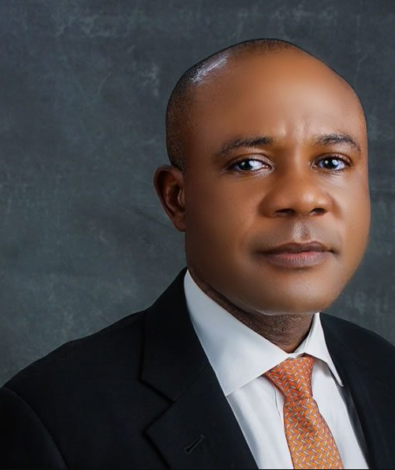Nigerian Sickle cell patients face N1 million a month bill as hospital admissions rises

Story highlights
- Nigerians living with sickle cell disease face staggering healthcare costs, with monthly expenses ranging from N70,000 to N1,000,000, largely due to frequent hospital admissions and costly medications.
- Health insurance coverage falls short for many, with plans often failing to cover essential treatments like routine medications and consultations.
- Government and NGO efforts to support sickle cell patients are insufficient, highlighting the urgent need for improved public healthcare infrastructure and more comprehensive assistance programs in Nigeria.
Nigerians living with sickle cell disease face staggering healthcare costs, with monthly expenses ranging from N70,000 to N1,000,000, largely due to frequent hospital admissions and costly medications.
Health insurance coverage falls short for many, with plans often failing to cover essential treatments like routine medications and consultations.
Government and NGO efforts to support sickle cell patients are insufficient, highlighting the urgent need for improved public healthcare infrastructure and more comprehensive assistance programs in Nigeria.
Costs of treatment for sickle cell patients and influencing factors
Sickle cell patients require extensive medical care, including medications, regular medical consultations, hospital admissions during sickle cell crises, alternative therapies like physiotherapy for pain and mobility management, and nutritional supplements.
Some may require additional care, such as at-home caregiving and medical devices like oxygen therapy.
The rainy season also plays a major role in the frequency of hospitalization and medical consultations, with hospital admissions increasing during this period.
Routine medications
Hydroxyurea: A common medication prescribed to reduce the frequency of painful crises and other complications.
- 100mg: N1500-N2000 per pack of 30 capsules
- 250mg: N3500-N4000 per pack of 30 capsules
- 500mg: N4000-N4500 per pack of 30 capsules
Pain Relievers: Both opioid and non-opioid pain relievers may be prescribed based on severity.
- Non- opioids: N1500- N6000 per pack
- Opioids: N350-N450 per tablet
Folic Acid: Essential for red blood cell production. Average cost: N1,000 – N2,000 per jar of 100 tablets.
Regular medical consultations
Nigerians living with sickle cell disease are required to have regular consultations with hematologists or general physicians.
The average cost for one regular consultation at a hematology clinic in Nigeria is N5,000 – N10,000.
During these consultations, patients undergo blood tests to monitor their health status, with each blood test ranging from N4,000 to N8,000.
Hospital admissions/Emergency care
In cases of sickle cell pain crises, patients are admitted to a hospital and receive inpatient care.
The average cost of a hospital stay in a government hospital is N50,000 – N70,000 for all days. In private hospitals, the cost ranges from N25,000 to N40,000 per day.
Depending on the severity of the condition and the level of care required, monthly expenses for a sickle cell patient in Nigeria in 2024 can range from N70,000 to N1,000,000.
The Nigerian patient experience
Joy Ogazi told Nairametrics that monthly routine medications could cost anywhere from N15,000 to N20,000 due to price fluctuations as a result of Naira depreciation.
“Monthly routine meds cost between N15,000 and N20,000 due to the dosage I’m required to take and with the increase of goods and commodities in Nigeria, the price fluctuates,” she said.
Okeyoyin Blessing shared that she utilizes private hospitals, with monthly hospital admissions costing an average of N700,000 and sometimes exceeding N1,000,000 due to severe complications.
“I had to move to private care, and it is really expensive. I’ve spent over a million in some months and an average of N700,000,” she explained.
Ogazi added that she spends up to N50,000 on average in public hospitals, while private hospitals cost higher, sometimes up to N40,000 per day.
“I spend N50,000 on average in a government hospital. It costs more in a private hospital where you are charged N40,000 for bed space just for one night,” she noted.
What you should know on Sickle Cell and Its Impact in Africa and Nigeria
Sickle Cell Disease (SCD) is a genetic blood disorder characterized by the presence of hemoglobin S (HbS), causing red blood cells to become rigid and sickle shaped.
This abnormality leads to complications such as obstructed blood flow and the destruction of red blood cells. Africa has the highest prevalence of SCD globally due to the protective advantage of the sickle cell trait against malaria.
The carrier state (HbAS) provides some resistance to malaria, explaining the high frequency of the HbS gene in malaria-endemic regions.
- It is estimated that over 300,000 infants are born with SCD annually worldwide, with approximately 75% of these births occurring in sub-Saharan Africa.
- SCD poses a significant public health challenge in Africa due to high morbidity and mortality rates, limited access to comprehensive care, insufficient public awareness, inadequate screening programs, and the economic burden on families and healthcare systems.
Nigeria has one of the highest burdens of sickle cell disease in the world, with an estimated 150,000 to 200,000 babies born with the disease annually.
- Approximately 24% of the Nigerian population carries the sickle cell trait (HbAS), and about 2-3% have SCD (HbSS).
- The disease impacts the health and quality of life of those afflicted and places a substantial financial burden on patients and their families.
Government and NGO interventions
Health insurance coverage for Nigerian sickle cell survivors varies. Most patients are covered by health insurance, yet the coverage plans cover little to none of the total expenses.
Plans that cover a higher percentage of expenses come with conditions.
Blessing Okeyoyin, who is registered with the National Health Insurance Authority (NHIA), says the government only covers folic acid tablets, the most affordable of all her treatment options.
“I do have health insurance (NHIS), but it doesn’t cover more than folic acid tablets. Most of my drugs are not covered,” she said.
Joy Ogazi mentioned that her health insurance covers about 90% of her hospital admission bills but does not cover her routine medications or regular medical consultations.
- The coverage of the admission bills is also restricted to the hospital affiliated with her employer.
“My health insurance covers about 90% of the hospital bills. This only applies to when I’m admitted at the healthcare facility of the organization I work for. The insurance does not cover my routine meds or hematology clinic,” she explained.
Efforts by the government and non-governmental organizations (NGOs) to alleviate this burden include providing subsidized medications, free health camps, and financial aid programs.
- However, these initiatives are often insufficient to meet the widespread need.
- Most sickle cell patients have not received any financial assistance from government programs, NGOs, or other organizations.
- Neither have they received any specific grants or programs that have been particularly helpful to them.
- Okeyoyin suggested that the government improve the quality of public hospitals, as many people cannot afford private hospitals.
- She pointed out issues such as patients contracting other illnesses during admission and long waiting times for routine check-ups, which can lead to additional health crises.
- She also highlighted the problem of limited bed space in general hospitals, forcing patients to seek private care during emergencies.
- She stressed the importance of stable, trusted doctor-patient relationships, which can be disrupted by frequent changes in doctors, causing anxiety for patients.
Joy Ogazi believes that NGOs carry much of the burden in helping sickle cell patients in Nigeria and suggests that the government should collaborate with and support these organizations.
She emphasized the need for increased awareness among individuals and families about sickle cell disease.
Additionally, she advocated for price regulation on medications or providing free routine medications, free consultations, and free testing at federal hospitals with hematology clinics.



